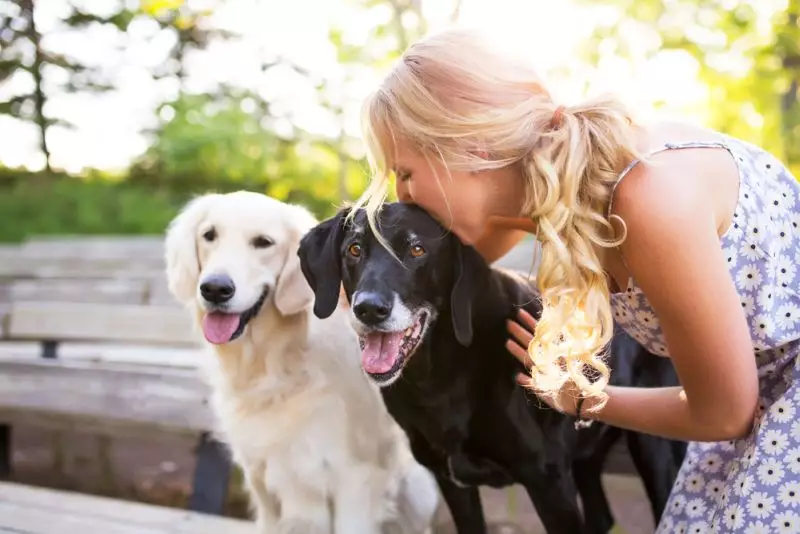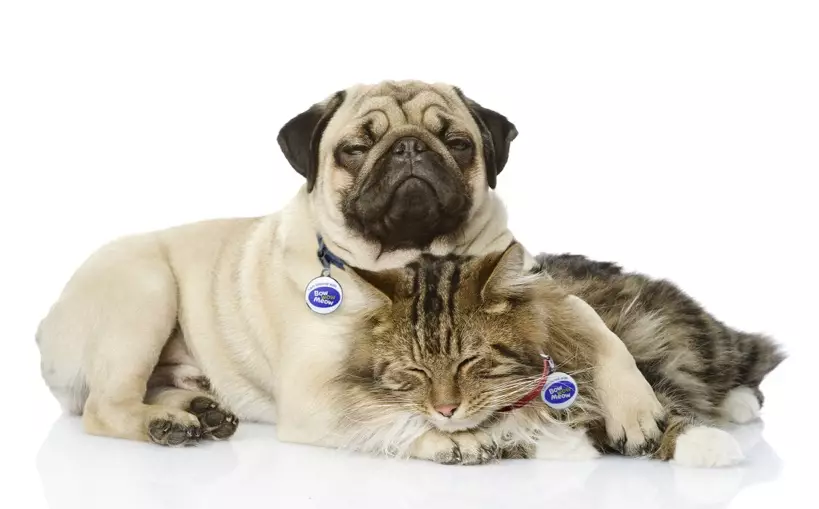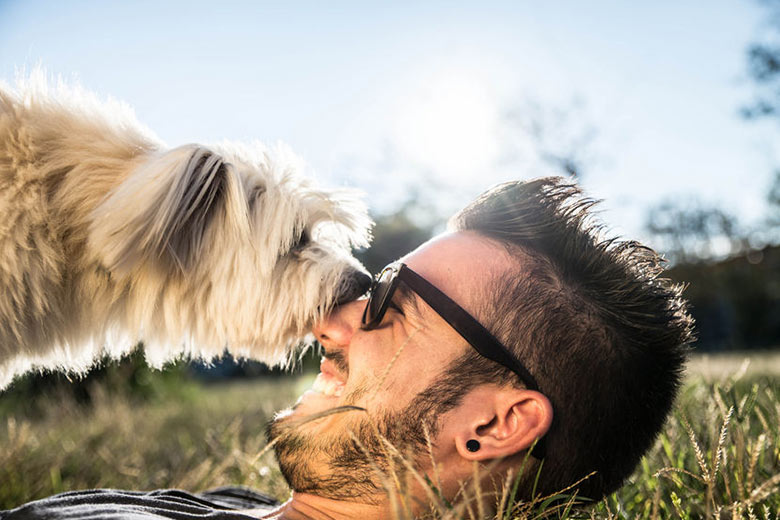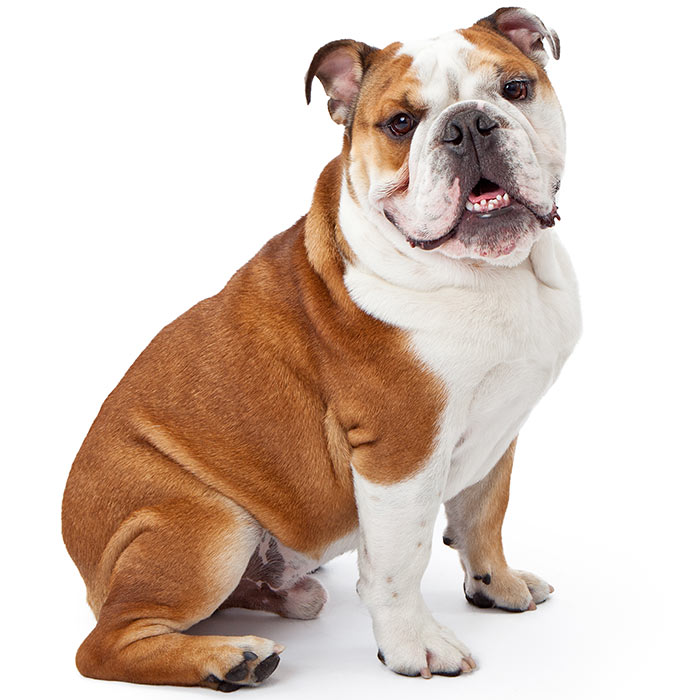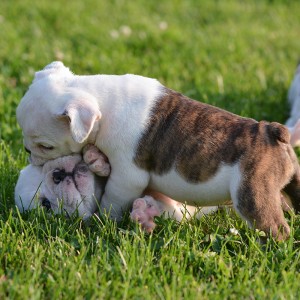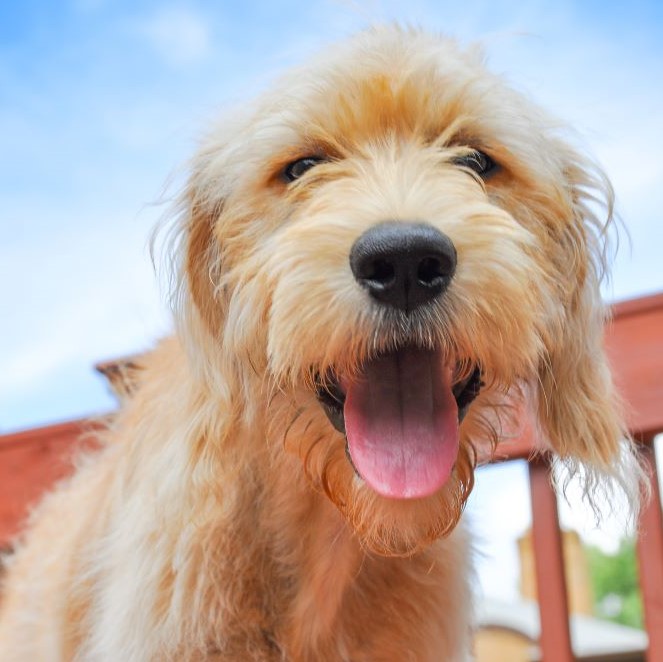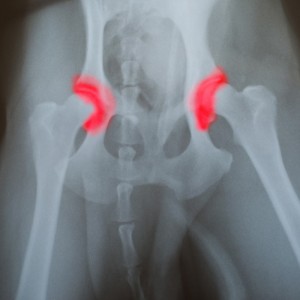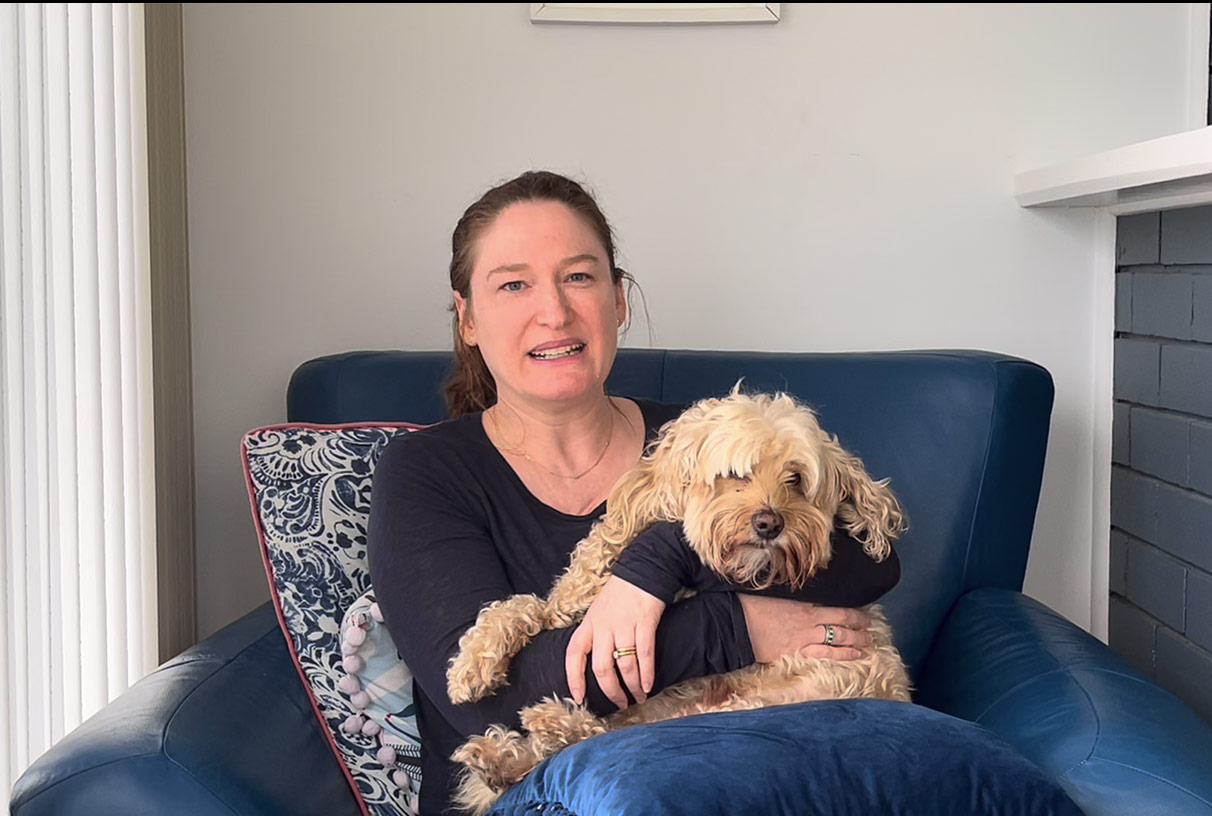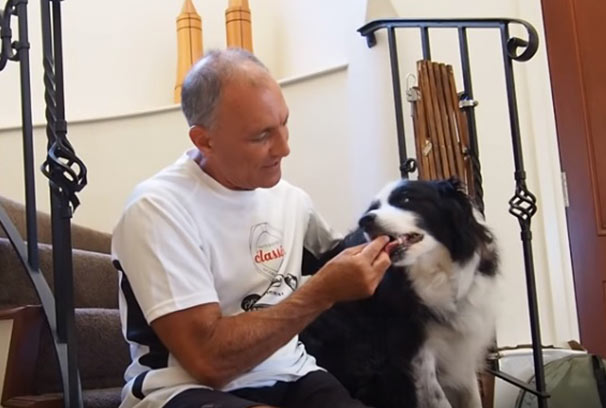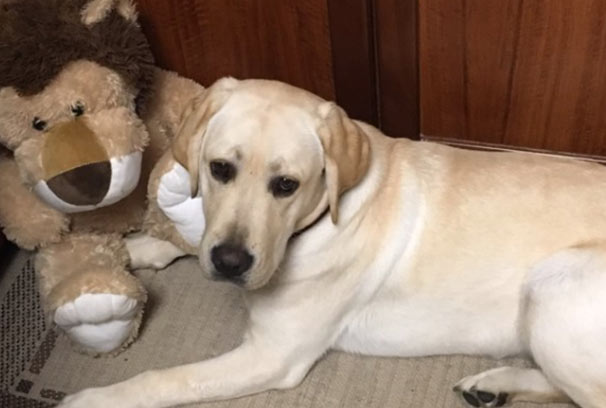The biggest dog breeds – Giant dog breeds info
What defines a giant dog breed?
While there is no official definition, breeds with an average weight exceeding 45kg tend to be considered giant breeds, and height is also an important factor. When it comes to the true giants of the bunch, the massive Mastiff and super-sized Saint Bernard can even exceed 90kg, while the imposing Irish Wolfhound weighs “only” around 50kg but can reach 1 metre in height, making it the tallest dog breed.
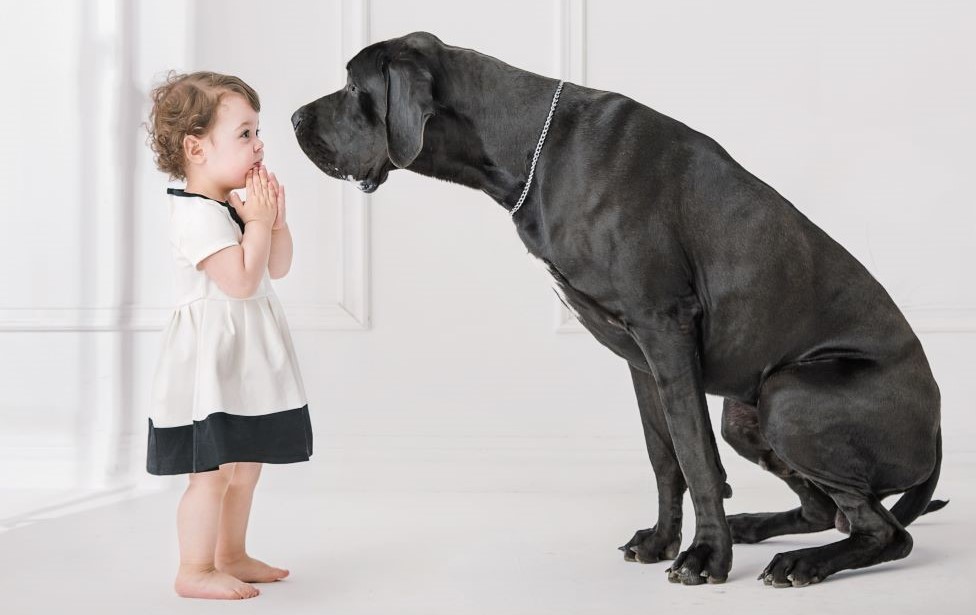
It goes without saying that the biggest dog breeds are not for everyone. While they make the cutest pups and the most adorable adolescents, the giant breeds are a lot to handle. Definitely not a decision to rush into, if you are thinking about adding one of the largest dog breeds to your family, there are a few essential things to take into consideration.
Maturation and lifespan
The largest dog breeds spend the longest time as puppies and are the slowest to mature. They may not be fully mature until 18 months to 2 years. During their extended adolescence, they tend to look very ‘gangly’ and to act clumsily.
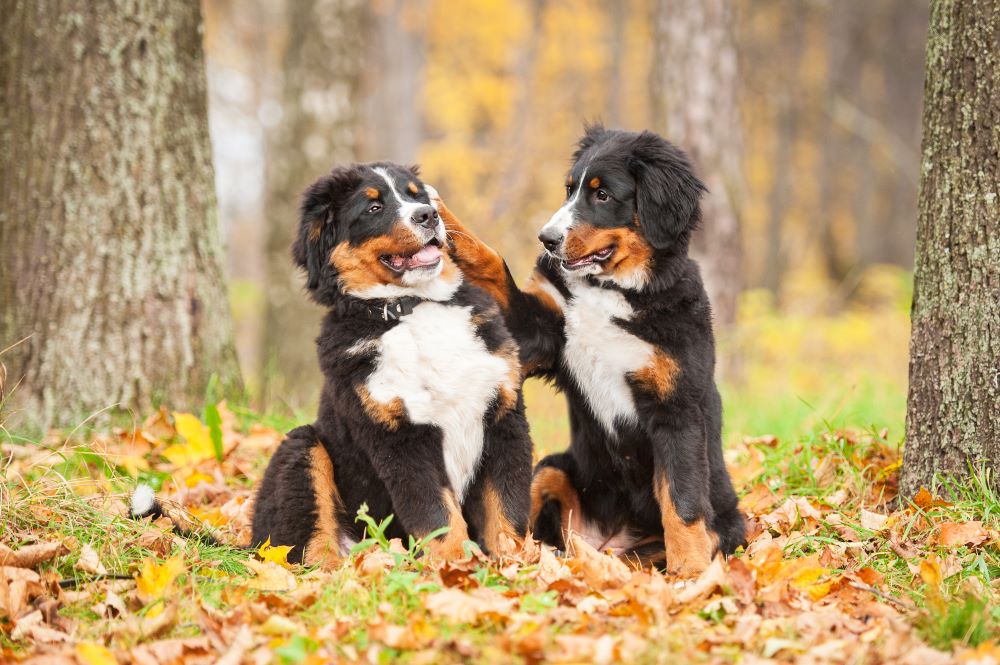
Sadly, they also tend to have the shortest lifespans, averaging around 7 to 10 years, because their size puts extra strain on their bodies and organs. In contrast, some smaller breeds can live for 15 years or more.
Health
Giant breeds tend to have more health problems than smaller dogs, including:
- Bone and joint issues, such as hip dysplasia and arthritis
- Bloat or torsion
- Thyroid and other hormone issues
- Heart problems
- Cancers
With most giant breeds having a higher probability of health issues during their lifetimes, Pet Insurance is highly recommended from early puppihood, before any problems arise that could be deemed as pre-existing conditions.
Dietary requirements
It’s very important to feed a giant breed pup a premium food that is specifically formulated with the correct balance of nutrients for their requirements. An incorrect diet can contribute to overly rapid growth which can lead to bone and joint problems.
Adults need a different balance of ingredients from puppies as well as the right amount of food for their size and activity level. Over-feeding and resultant weight gain can lead to a host of health issues.
Activity level
Size is not always a good indicator of activity level. The giant breeds that were developed as working dogs require a considerable amount of exercise and are best suited to a larger living space and outdoor area with plenty of room to run around.
Other giants, such as the Great Dane, can live quite happily in an apartment as long as they get out for daily walks (although toilet training a giant breed can be challenging if living in an apartment!).
Other challenges of giant breeds
- Everything needs to be bigger for a giant breed dog, from your sofa to the size of your car to their toys, bowls and beds.
- Finding pet sitters, dog walkers, pet-friendly accommodation and even veterinarians that can cater for a giant breed dog can sometimes be tricky.
- While many giant breeds are gentle with small children, they can still hurt them easily just because of their size – even by knocking them over inadvertently.
- Bigger dogs lead to bigger bills. The cost of feeding a large breed dog can be considerably higher, for one.
- Training, including puppy school and obedience classes, is almost essential when it comes to giant dogs, as their massive size makes them unmanageable if they are disobedient (think about the fully grown giant pulling you on a lead or jumping up on you…).
- Bathing and grooming a giant dog yourself can be a real challenge!
The biggest dog breeds
Bullmastiff
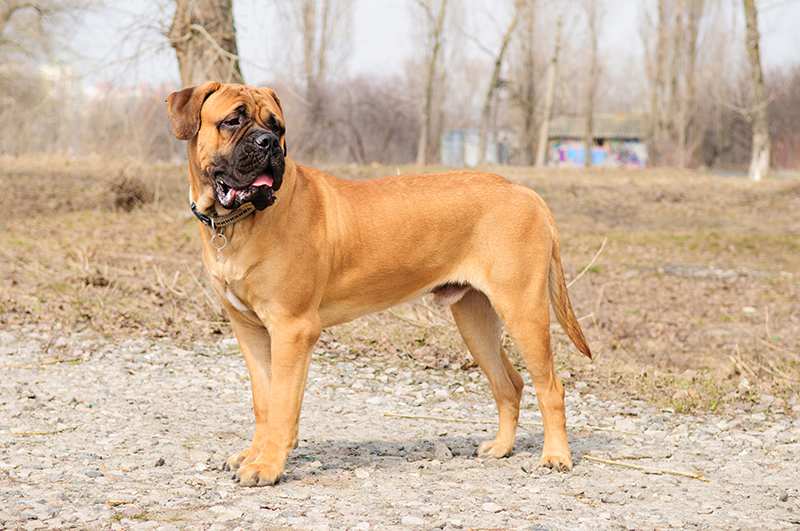
The ultimate guard dog, the Bullmastiff was developed in the 19th century by English game keepers as a companion and guardian dog with a strong protective instinct. Powerful, fearless and stubborn, the Bullmastiff will push the boundaries, so needs an experienced owner who is committed to training. Although they have a calm and sociable nature, if provoked they can become fierce and hard to settle.
| Temperament: | Stubborn and loyal |
| Weight: | 50 to 60 kg |
| Height (max): | 69 cm |
| Activity level: | Low – regular walks |
| Life expectancy: | 8 to 10 years |
| Pros: | Low grooming requirements & don’t shed much |
| Cons: | Slobbering & flatulence |
- Learn more about the Bullmastiff.
- Take our breed selector quiz to find out if the Bullmastiff is right for you.
Bernese Mountain Dog
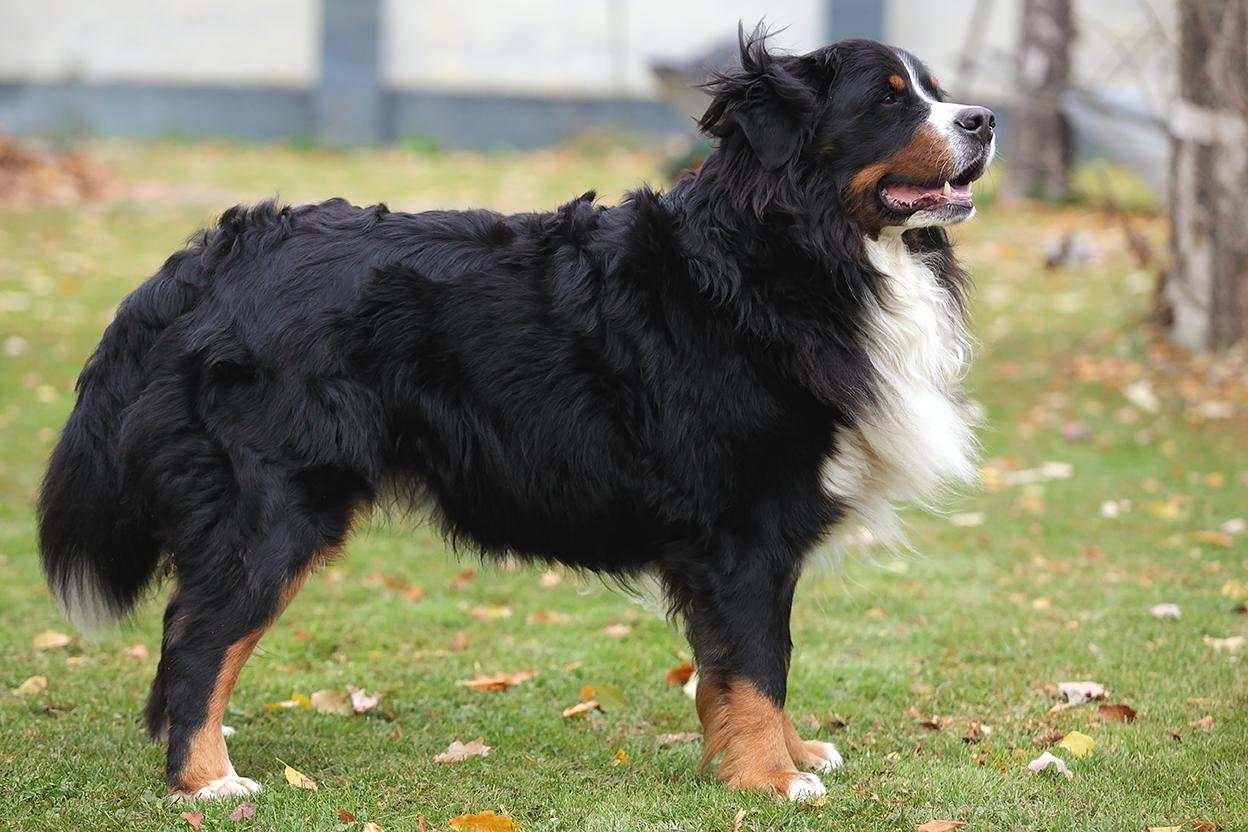
The Bernese Mountain Dog is one of the more popular giant breeds, developed in Switzerland as a hard-working, versatile dog for farms and excel at drafting or carting. With a distinctive tri-coloured coat, they thrive in cold weather. Their good-natured, laid-back temperament makes the popular companions and family dogs. If they don’t get enough exercise, they tend to become restless and bark excessively.
| Temperament: | Loving, friendly & easy-going |
| Weight: | 40 to 53 kg |
| Height (max): | 70 cm |
| Activity level: | High – lots of play and daily walks |
| Life expectancy: | 6 to 8 years |
| Pros: | Family friendly, get on well with everyone including other dogs & cats |
| Cons: | Heavy shedders |
- Learn more about the Bernese Mountain Dog.
- Take our breed selector quiz to find out if the Bernese Mountain Dog is right for you.
Cane Corso
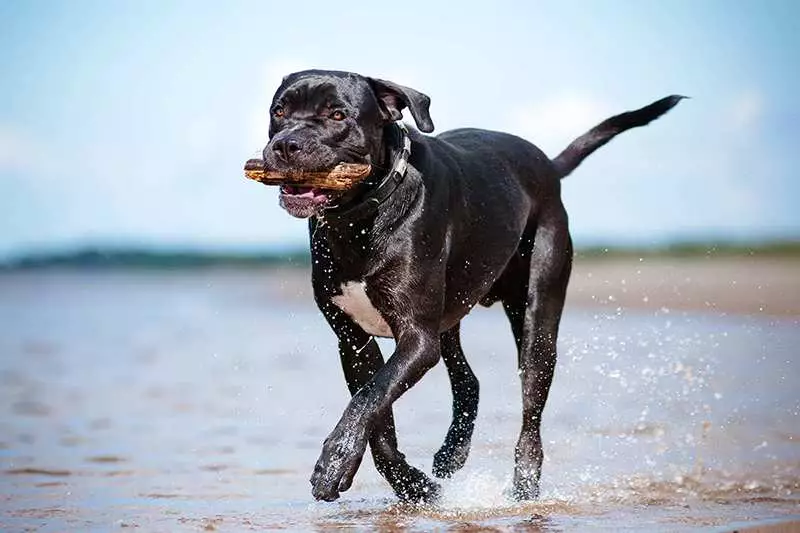
Energetic, strong and intimidating, the Cane Corso dates back to Roman times where it was developed as a guard dog, fighter and hunter. Although eager to please, because of their wary and protective tendencies, they can be difficult to handle, so early socialisation and training is essential.
| Temperament: | Loyal & affectionate |
| Weight: | 45 to 50 kg |
| Height (max): | 68 cm |
| Activity level: | Medium – regular long walks |
| Life expectancy: | 10 to 11 years |
| Pros: | Excellent watch dogs |
| Cons: | Not suited to inexperienced owners |
- Learn more about the Cane Corso.
- Take our breed selector quiz to find out if the Cane Corso is right for you.
Dogue de Bordeaux
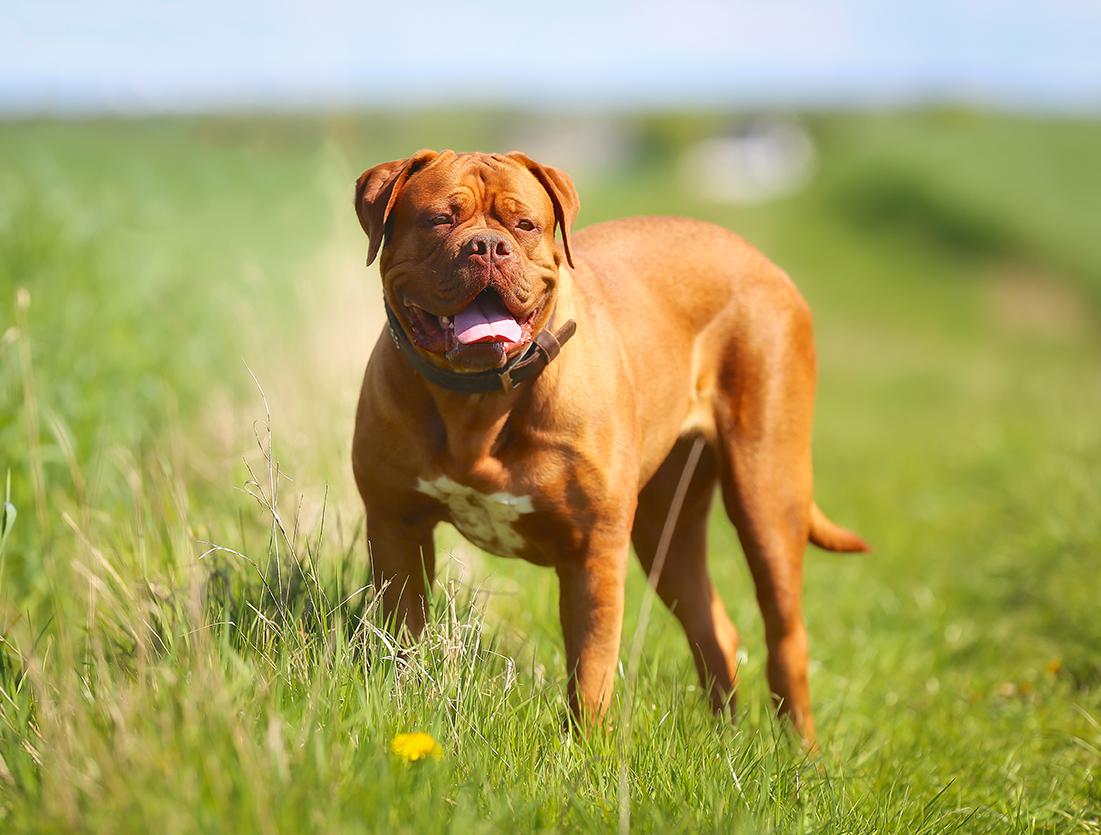
Developed in France as hunters of pigs, wolves and bears, the Dogue de Bordeaux has the proportionately largest head of any breed. These dogs are calm, sensitive and loyal, but they are also known to be stubborn, which makes training challenging but super important.
| Temperament: | Loving, placid & protective |
| Weight: | 50 to 68 kg |
| Height (max): | 65 cm |
| Activity level: | Low |
| Life expectancy: | 10 to 12 years |
| Pros: | Family friendly, good with young children & other animals |
| Cons: | Drooling & high potential to gain weight |
- Learn more about the Dogue de Bordeaux.
- Take our breed selector quiz to find out if the Dogue de Bordeaux is right for you.
Great Dane
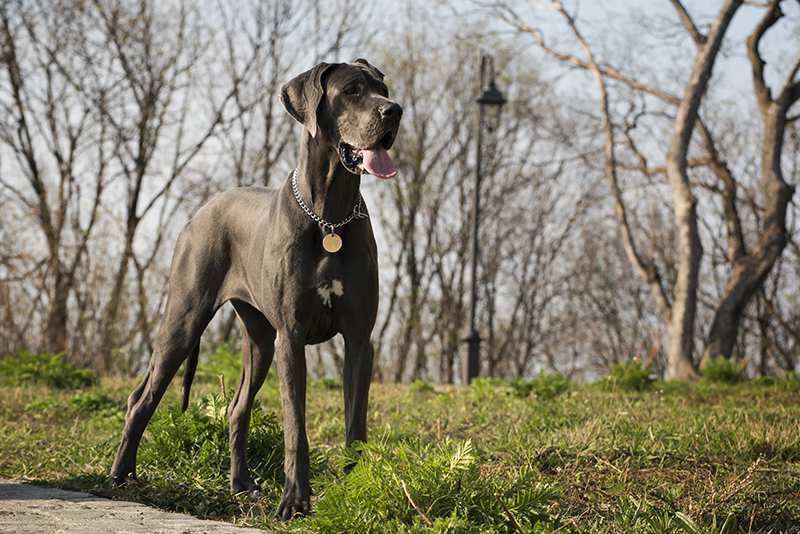
One of the most recognisable giant breeds, Great Danes are gentle, easy-going and friendly. Popular as companion animals, Great Danes are very loyal and alert guardians of their home and family. They do best with a large yard to run and play in, but can be kept in an apartment if they get a daily walk.
| Temperament: | Affectionate & patient |
| Weight: | 45 to 91 kg |
| Height (max): | 86 cm |
| Activity level: | Moderate |
| Life expectancy: | 6 to 8 years |
| Pros: | Family friendly, low grooming needs |
| Cons: | Not compatible with smaller pets such as rabbits & mice |
- Learn more about the Great Dane.
- Take our breed selector quiz to find out if the Great Dane is right for you.
Irish Wolfhound
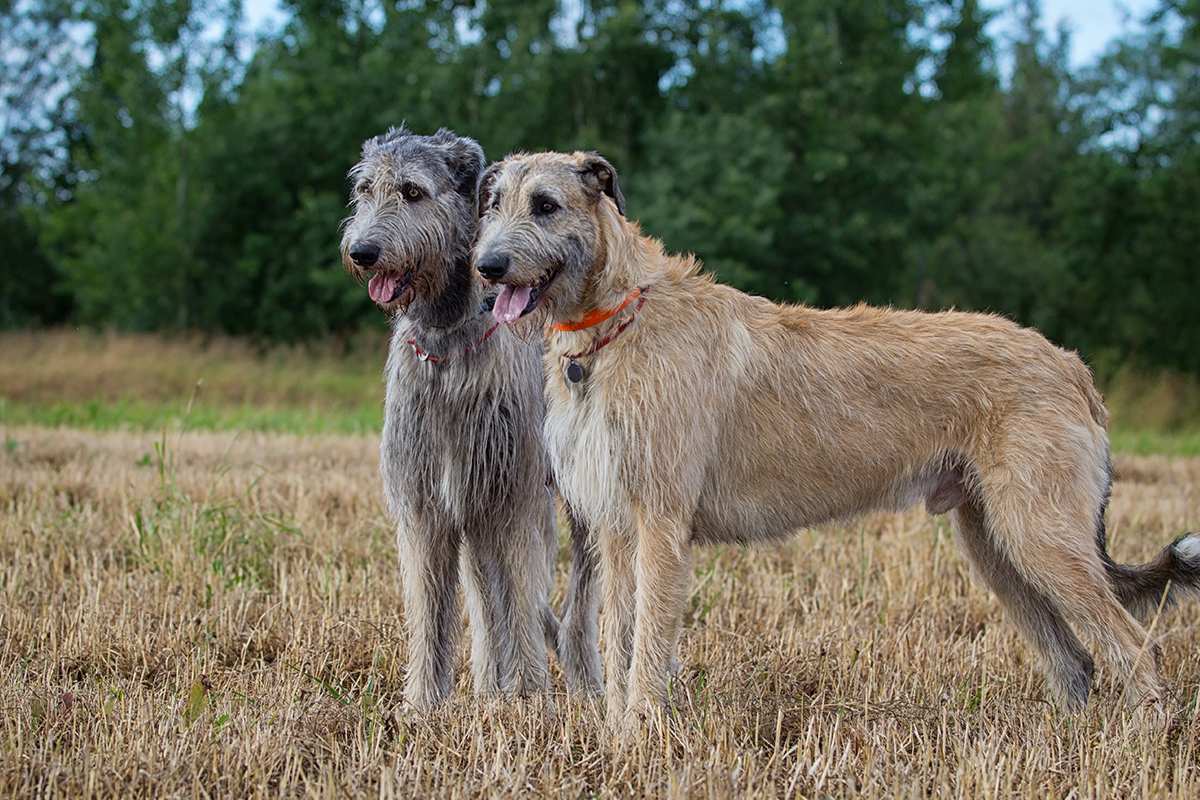
Known as the tallest dog breed, but athletic and well proportioned in appearance, the Irish Wolfhound was originally bred to help control the wolf population in Ireland. They have a sensitive nature but still retain a strong hunting instinct that novice owners might struggle to control.
| Temperament: | Gentle, relaxed & friendly |
| Weight: | 63 to 81 kg |
| Height (max): | 100 cm |
| Activity level: | Medium to high |
| Life expectancy: | 6 to 8 years |
| Pros: | Family friendly, get on well with kids |
| Cons: | They eat a lot, so high food costs! |
- Learn more about the Irish Wolfhound.
- Take our breed selector quiz to find out if the Irish Wolfhound is right for you.
Kangal
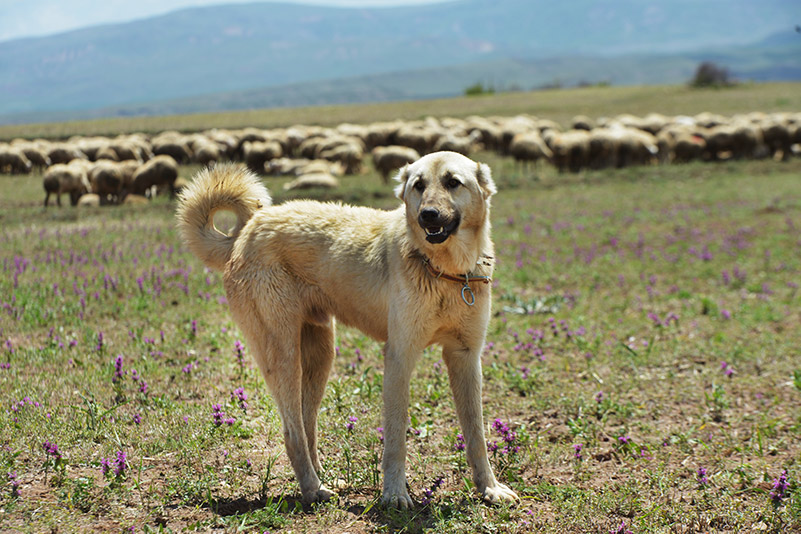
The Kangal is a territorial, smart and loyal working dog that was developed in Turkey to protect livestock. Agile and athletic for their massive size, Kangals can appear intimidating but their droopy brown eyes reveal their gentle nature. Boisterous and ready to jump at any surprise attack, you will rarely see a Kangal lying around the house.
| Temperament: | Reliable, intelligent, loyal & protective |
| Weight: | 50 to 65 kg |
| Height (max): | 85 cm |
| Activity level: | High – lengthy daily walks & opportunities to roam & run |
| Life expectancy: | 12 to 15 years |
| Pros: | Excellent watch dogs |
| Cons: | Not suitable for inexperienced owners |
- Learn more about the Kangal.
- Take our breed selector quiz to find out if the Kangal is right for you.
Newfoundland
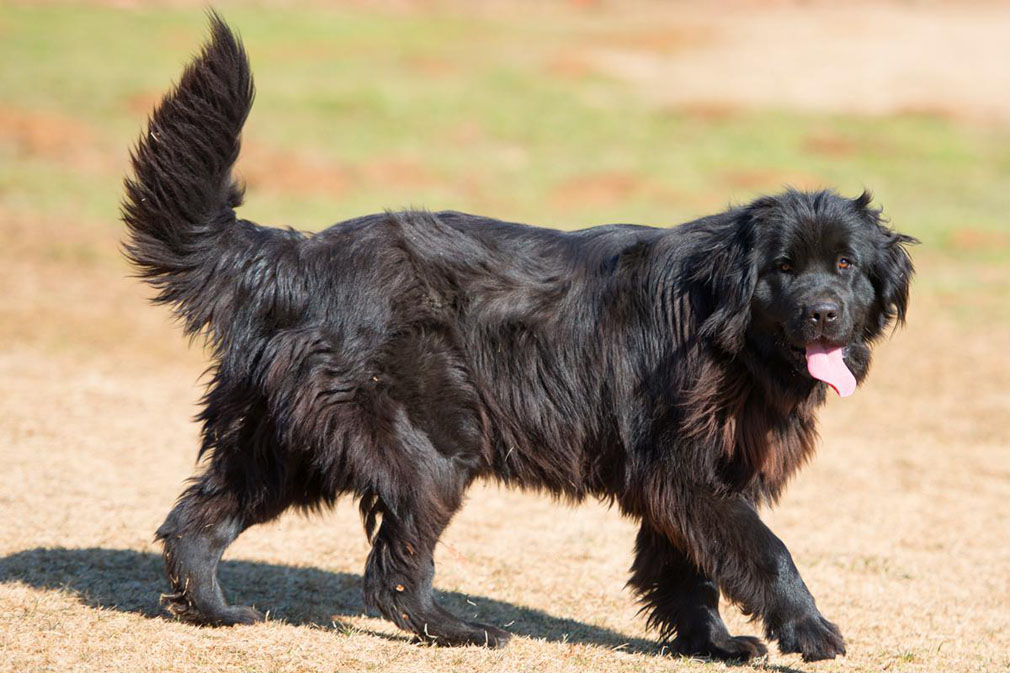
This strong, muscular dog with its webbed feet and a water-repellent outer coat is a natural in the water. The Newfoundland and was developed in Canada as a working dog and companion to fishermen, pulling fishing nets out of icy water and performing heroic water rescues and is still used in water rescue around the world. It is known for its gentleness and trainability.
| Temperament: | Friendly, calm & relaxed |
| Weight: | 65 to 69 kg |
| Height (max): | 74 cm |
| Activity level: | Medium – they enjoy swimming & diving |
| Life expectancy: | 8 to 10 years |
| Pros: | Family friendly, get on well with children, other dogs & cats |
| Cons: | Suffer from separation anxiety if left without human contact for extended periods |
- Learn more about the Newfoundland.
- Take our breed selector quiz to find out if the Newfoundland is right for you.
Saint Bernard
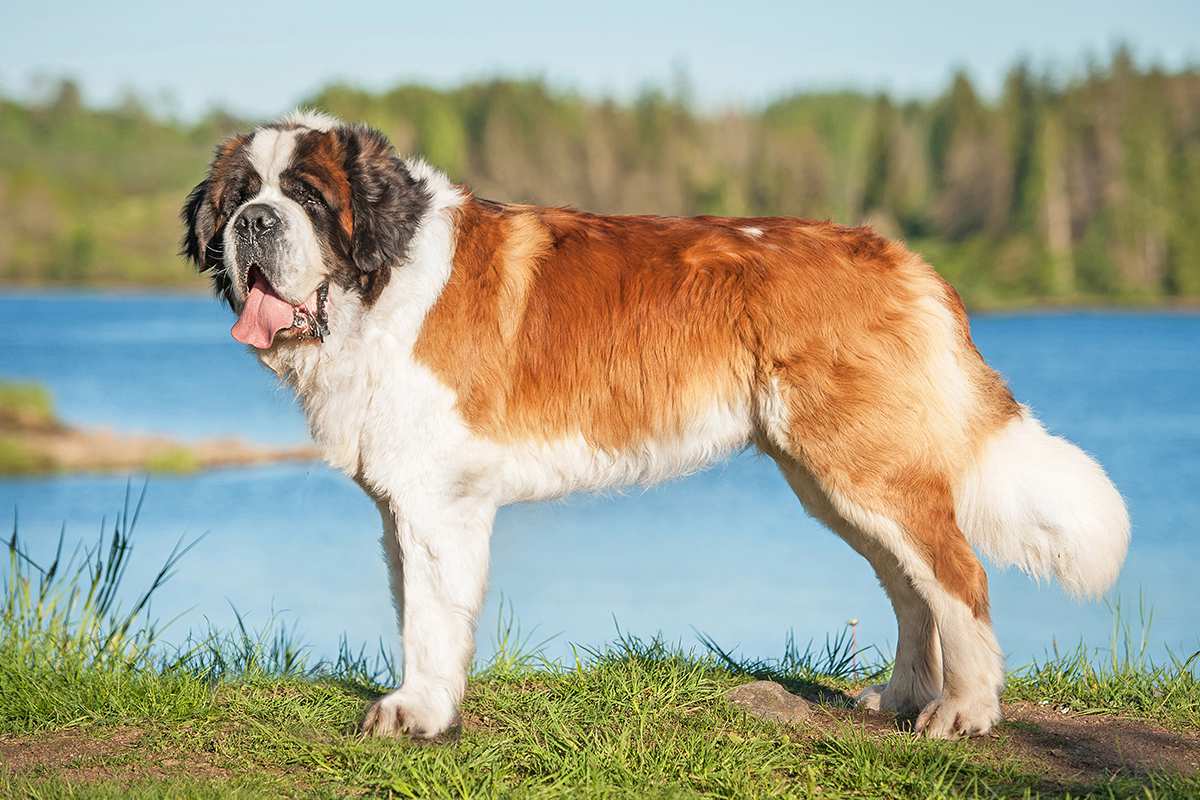
One of the most famous giant breeds, the Saint Bernard hails from the Swiss Alps. The massive and powerful breed was first developed to locate and rescue people who became lost in the snow and buried by avalanches. The Saint Bernard’s charismatic friendly expression has helped it gain popularity in film and television, and become beloved by dog lovers.
| Temperament: | Gentle & good natured |
| Weight: | 64 to 120 kg |
| Height (max): | 90 cm |
| Activity level: | Medium (lessening as they get older) |
| Life expectancy: | 8 to 10 years |
| Pros: | Family friendly & good guard dogs |
| Cons: | Not suited to hot climates because of their thick coats |
- Learn more about the Saint Bernard.
- Take our breed selector quiz to find out if the Saint Bernard is right for you.

